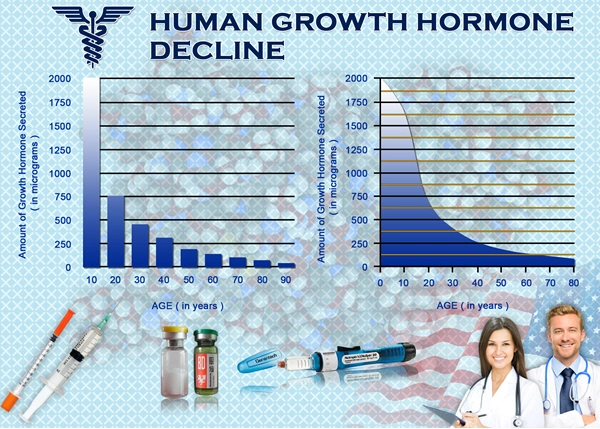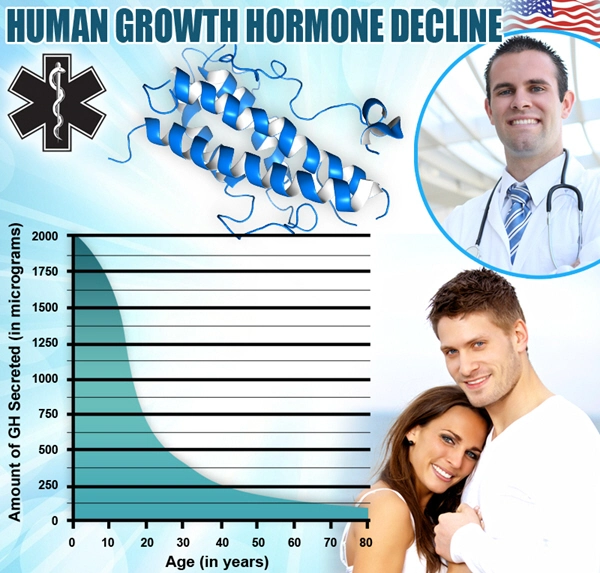Introduction to Hypogonadism and Autoimmune Diseases
Hypogonadism, a condition characterized by the body's inability to produce sufficient sex hormones, presents unique challenges when it coexists with autoimmune diseases. In the United States, where autoimmune disorders affect a significant portion of the population, understanding the interplay between these conditions is crucial for effective management and treatment. This article aims to provide American males with a detailed overview of hypogonadism in the context of autoimmune diseases, offering insights into diagnosis, treatment, and lifestyle adjustments.
Understanding Hypogonadism
Hypogonadism can be classified as primary or secondary. Primary hypogonadism originates from a problem in the testicles, whereas secondary hypogonadism stems from issues in the hypothalamus or pituitary gland. Symptoms may include decreased libido, erectile dysfunction, fatigue, and mood changes. In men with autoimmune diseases, the immune system's attack on the body's own tissues can exacerbate or directly cause hypogonadism.
The Link Between Autoimmune Diseases and Hypogonadism
Autoimmune diseases such as rheumatoid arthritis, type 1 diabetes, and Addison's disease can lead to hypogonadism through various mechanisms. Chronic inflammation, a hallmark of autoimmune conditions, can disrupt the normal functioning of the endocrine system. Additionally, certain treatments for autoimmune diseases, such as corticosteroids, can further impact hormone levels, complicating the clinical picture.
Diagnosis of Hypogonadism in Autoimmune Patients
Diagnosing hypogonadism in patients with autoimmune diseases requires a comprehensive approach. Initial steps include a thorough medical history and physical examination, followed by blood tests to measure testosterone levels. It is essential to consider the timing of these tests, as testosterone levels can fluctuate throughout the day. Further, assessing levels of luteinizing hormone (LH) and follicle-stimulating hormone (FSH) can help distinguish between primary and secondary hypogonadism.
Treatment Strategies
Treatment for hypogonadism in men with autoimmune diseases must be tailored to address both conditions effectively. Hormone replacement therapy (HRT) is a common approach, involving the administration of testosterone to restore normal levels. However, caution is necessary, as HRT can have implications for autoimmune disease management. Close monitoring and collaboration between endocrinologists and rheumatologists or other specialists are vital.
Lifestyle and Dietary Considerations
Lifestyle modifications play a significant role in managing hypogonadism and autoimmune diseases. Regular exercise can help improve overall health and hormone levels, while a balanced diet rich in nutrients supports immune function and hormonal balance. It is advisable to avoid excessive alcohol consumption and smoking, as these can negatively impact testosterone levels and exacerbate autoimmune symptoms.
Psychological Support and Quality of Life
Living with hypogonadism and an autoimmune disease can take a toll on mental health. Depression and anxiety are common, and addressing these issues is crucial for overall well-being. Support groups, counseling, and, if necessary, psychiatric intervention can provide valuable assistance. Maintaining a strong support network and engaging in activities that promote mental health are essential components of comprehensive care.
Future Directions and Research
Ongoing research continues to shed light on the complex relationship between hypogonadism and autoimmune diseases. Advances in genetic testing and personalized medicine hold promise for more targeted treatments. As our understanding evolves, so too will the strategies for managing these intertwined conditions, offering hope for improved outcomes and quality of life for affected individuals.
Conclusion
For American males navigating the dual challenges of hypogonadism and autoimmune diseases, a multifaceted approach to care is essential. By understanding the connections between these conditions and adopting a comprehensive treatment plan that includes medical intervention, lifestyle adjustments, and psychological support, men can achieve better health outcomes and enhance their quality of life. As research progresses, the future looks promising for those affected by these complex health issues.

- Hypogonadism and Sleep Disorders: A Bidirectional Link in American Males [Last Updated On: February 18th, 2025] [Originally Added On: February 18th, 2025]
- Understanding and Managing Hypogonadism: A Comprehensive Guide for American Males [Last Updated On: March 11th, 2025] [Originally Added On: March 11th, 2025]
- Unveiling the Link Between Hypogonadism and Mental Health: A Comprehensive Guide for American Males [Last Updated On: March 11th, 2025] [Originally Added On: March 11th, 2025]
- Unveiling the Effects of Hypogonadism on Muscle Vitality in American Males [Last Updated On: March 16th, 2025] [Originally Added On: March 16th, 2025]
- Unraveling the Nexus of Hypogonadism and Autoimmune Diseases: A Comprehensive Guide for American Males [Last Updated On: March 16th, 2025] [Originally Added On: March 16th, 2025]
- Unveiling the Link Between Hypogonadism and Impaired Wound Healing in American Males [Last Updated On: March 16th, 2025] [Originally Added On: March 16th, 2025]
- Unraveling the Nexus of Hypogonadism and Parathyroid Function: Insights for American Males [Last Updated On: March 16th, 2025] [Originally Added On: March 16th, 2025]
- Exercise Boosts Testosterone: Managing Hypogonadism in American Males [Last Updated On: March 18th, 2025] [Originally Added On: March 18th, 2025]
- Hypogonadism's Impact on Liver Function: Management and Monitoring Strategies [Last Updated On: March 18th, 2025] [Originally Added On: March 18th, 2025]
- Hypogonadism and Chronic Pain: Integrated Treatment Approaches for American Males [Last Updated On: March 19th, 2025] [Originally Added On: March 19th, 2025]
- Hypogonadism and Testosterone Therapy: Benefits, Risks, and Considerations for American Males [Last Updated On: March 19th, 2025] [Originally Added On: March 19th, 2025]
- Ethical Considerations in Treating Hypogonadism with Testosterone Therapy in American Men [Last Updated On: March 19th, 2025] [Originally Added On: March 19th, 2025]
- Hypogonadism and Thyroid Dysfunction: Exploring Correlations and Clinical Implications in American Males [Last Updated On: March 20th, 2025] [Originally Added On: March 20th, 2025]
- Hypogonadism and Prostate Health: Understanding Links, Risks, and Management Strategies [Last Updated On: March 20th, 2025] [Originally Added On: March 20th, 2025]
- Understanding Hypogonadism: Causes, Symptoms, and Treatment for American Males [Last Updated On: March 20th, 2025] [Originally Added On: March 20th, 2025]
- Hypogonadism in American Males: Links to Cancer Risk and Management Strategies [Last Updated On: March 20th, 2025] [Originally Added On: March 20th, 2025]
- Hypogonadism's Impact on Men's Health and Quality of Life: Diagnosis, Treatment, and Support [Last Updated On: March 21st, 2025] [Originally Added On: March 21st, 2025]
- Hypogonadism and Autoimmune Disorders: Interplay, Management, and Future Research in American Males [Last Updated On: March 21st, 2025] [Originally Added On: March 21st, 2025]
- Medical Imaging Advances in Diagnosing Hypogonadism: MRI, CT, and Ultrasound Techniques [Last Updated On: March 21st, 2025] [Originally Added On: March 21st, 2025]
- Hypogonadism's Impact on Skin Health in American Males: TRT Benefits and Risks [Last Updated On: March 22nd, 2025] [Originally Added On: March 22nd, 2025]
- Hypogonadism's Impact on Bone Health: Diagnosis, TRT, and Management Strategies [Last Updated On: March 22nd, 2025] [Originally Added On: March 22nd, 2025]
- Managing Hypogonadism: A Collaborative Approach by Medical Specialists [Last Updated On: March 22nd, 2025] [Originally Added On: March 22nd, 2025]
- Exploring Alternative Medicines for Hypogonadism Management in American Males [Last Updated On: March 22nd, 2025] [Originally Added On: March 22nd, 2025]
- Hypogonadism Screening Protocols and Recommendations for American Males [Last Updated On: March 22nd, 2025] [Originally Added On: March 22nd, 2025]
- Hypogonadism in American Males: Addressing Psychological Needs Through Tailored Counseling [Last Updated On: March 23rd, 2025] [Originally Added On: March 23rd, 2025]
- Hypogonadism and Hair Loss: Treatment Options and Outcomes for American Males [Last Updated On: March 23rd, 2025] [Originally Added On: March 23rd, 2025]
- Hypogonadism's Impact on Neurological Health in American Males: Cognitive and Mood Effects [Last Updated On: March 23rd, 2025] [Originally Added On: March 23rd, 2025]
- Hypogonadism's Impact on Gastrointestinal Health in American Males: A Comprehensive Review [Last Updated On: March 24th, 2025] [Originally Added On: March 24th, 2025]
- Hypogonadism and Hearing Loss: Exploring the Hormonal Connection in American Males [Last Updated On: March 24th, 2025] [Originally Added On: March 24th, 2025]
- Managing Hypogonadism in American Males with Kidney Disease: Strategies and Challenges [Last Updated On: March 24th, 2025] [Originally Added On: March 24th, 2025]
- Hypogonadism Treatment Advances: Trends, Therapies, and Lifestyle Interventions [Last Updated On: March 24th, 2025] [Originally Added On: March 24th, 2025]
- Hypogonadism's Impact on Blood Pressure: Symptoms, Management, and Lifestyle Strategies [Last Updated On: March 24th, 2025] [Originally Added On: March 24th, 2025]
- Hypogonadism and Cholesterol: Implications for Cardiovascular Health in American Males [Last Updated On: March 24th, 2025] [Originally Added On: March 24th, 2025]
- Hypogonadism's Impact on Respiratory Health in American Males: Mechanisms and Clinical Insights [Last Updated On: March 24th, 2025] [Originally Added On: March 24th, 2025]
- Medical Innovations Transform Hypogonadism Treatment for American Males [Last Updated On: March 24th, 2025] [Originally Added On: March 24th, 2025]
- Hypogonadism's Impact on Joint Health: Treatment and Management Strategies [Last Updated On: March 25th, 2025] [Originally Added On: March 25th, 2025]
- Hypogonadism and Headaches: Diagnosis, Treatment, and Management Strategies for American Males [Last Updated On: March 25th, 2025] [Originally Added On: March 25th, 2025]
- Medical Nutrition Therapy for Managing Hypogonadism in American Males [Last Updated On: March 26th, 2025] [Originally Added On: March 26th, 2025]
- Hypogonadism's Impact on Muscle Health in American Males: Diagnosis and Treatment Strategies [Last Updated On: March 26th, 2025] [Originally Added On: March 26th, 2025]
- Medical Technology Revolutionizes Hypogonadism Diagnosis in American Males [Last Updated On: March 26th, 2025] [Originally Added On: March 26th, 2025]
- Hypogonadism and Balance Disorders: Exploring the Link and Treatment Options in American Males [Last Updated On: March 26th, 2025] [Originally Added On: March 26th, 2025]
- Hypogonadism and Anemia in American Males: Diagnosis, Management, and Quality of Life [Last Updated On: March 26th, 2025] [Originally Added On: March 26th, 2025]
- Hypogonadism's Impact on Cognitive Function in American Males: A Comprehensive Review [Last Updated On: March 26th, 2025] [Originally Added On: March 26th, 2025]
- Hypogonadism's Impact on Eye Health: A Comprehensive Overview for American Males [Last Updated On: March 26th, 2025] [Originally Added On: March 26th, 2025]
- Medical Rehabilitation for Hypogonadism: Enhancing Quality of Life in American Males [Last Updated On: March 27th, 2025] [Originally Added On: March 27th, 2025]
- Hypogonadism's Impact on Immune Function in American Males: Insights and Therapies [Last Updated On: March 27th, 2025] [Originally Added On: March 27th, 2025]
- Preventing Hypogonadism in American Males: Strategies and Interventions [Last Updated On: March 27th, 2025] [Originally Added On: March 27th, 2025]
- Hypogonadism in Transgender Men: Diagnosis, Treatment, and Personalized Care [Last Updated On: March 27th, 2025] [Originally Added On: March 27th, 2025]
- Hypogonadism's Emotional Impact: Understanding and Managing Mental Health in American Men [Last Updated On: March 27th, 2025] [Originally Added On: March 27th, 2025]
- Hypogonadism and Allergies: Exploring Links and Implications for American Men [Last Updated On: March 27th, 2025] [Originally Added On: March 27th, 2025]
- Hypogonadism's Impact on Dental Health: A Comprehensive Overview for American Males [Last Updated On: March 27th, 2025] [Originally Added On: March 27th, 2025]
- Understanding Hypogonadism: Symptoms, Treatment, and Lifestyle Management for American Males [Last Updated On: March 27th, 2025] [Originally Added On: March 27th, 2025]
- Hypogonadism and GERD: Exploring Hormonal Links and Treatment Implications in American Males [Last Updated On: March 27th, 2025] [Originally Added On: March 27th, 2025]
- Hypogonadism and Vision: Understanding Testosterone's Role and Treatment Strategies [Last Updated On: March 28th, 2025] [Originally Added On: March 28th, 2025]
- Monitoring Hypogonadism in Long-Term Care: Strategies for Enhanced Patient Care [Last Updated On: March 29th, 2025] [Originally Added On: March 29th, 2025]
- Medical Social Workers: Vital Support for Men with Hypogonadism [Last Updated On: March 29th, 2025] [Originally Added On: March 29th, 2025]
- Hypogonadism in American Males: Diagnosis, Treatment, and Management Strategies [Last Updated On: March 30th, 2025] [Originally Added On: March 30th, 2025]
- Managing Hypogonadism-Related Fatigue: Therapies and Lifestyle Strategies [Last Updated On: March 30th, 2025] [Originally Added On: March 30th, 2025]
- Hypogonadism's Impact on Urinary Health: Diagnosis, Management, and Lifestyle Strategies [Last Updated On: April 1st, 2025] [Originally Added On: April 1st, 2025]
- Hypogonadism's Link to Peripheral Neuropathy in American Males: Diagnosis, Treatment, and Research [Last Updated On: April 2nd, 2025] [Originally Added On: April 2nd, 2025]
- Strategies to Enhance Adherence in Hypogonadism Treatment Among American Males [Last Updated On: April 2nd, 2025] [Originally Added On: April 2nd, 2025]
- Hypogonadism Linked to Accelerated Skin Aging in American Men: A Comprehensive Study [Last Updated On: April 4th, 2025] [Originally Added On: April 4th, 2025]
- Hypogonadism's Impact on Sinus Health: Exploring Hormonal Links and Treatment Implications [Last Updated On: April 6th, 2025] [Originally Added On: April 6th, 2025]
- Innovative Medical Devices Revolutionize Hypogonadism Management in American Men [Last Updated On: April 8th, 2025] [Originally Added On: April 8th, 2025]
- Hypogonadism's Impact on Gallbladder Health in American Males: A Comprehensive Overview [Last Updated On: April 8th, 2025] [Originally Added On: April 8th, 2025]
- Hypogonadism in Postmenopausal Women: Symptoms, Treatment, and Support for American Males [Last Updated On: April 9th, 2025] [Originally Added On: April 9th, 2025]
- Hypogonadism's Impact on Nail Health in American Males: Management and Care Strategies [Last Updated On: April 9th, 2025] [Originally Added On: April 9th, 2025]
- Hypogonadism's Impact on Wound Healing in American Males: Testosterone's Crucial Role [Last Updated On: April 9th, 2025] [Originally Added On: April 9th, 2025]
- Hypogonadism Linked to Impaired Lymphatic Function in American Males: Study Insights [Last Updated On: April 10th, 2025] [Originally Added On: April 10th, 2025]
- Empowering Nurses in Hypogonadism Care: Education Strategies and Impact [Last Updated On: April 11th, 2025] [Originally Added On: April 11th, 2025]
- Hypogonadism's Impact on Ear Health: Understanding the Link and Management Strategies [Last Updated On: April 13th, 2025] [Originally Added On: April 13th, 2025]
- Managing Hypogonadism in Men with Chronic Illnesses: Strategies and Challenges [Last Updated On: April 13th, 2025] [Originally Added On: April 13th, 2025]
- Medical Counseling Enhances Hypogonadism Management in American Males [Last Updated On: April 13th, 2025] [Originally Added On: April 13th, 2025]
- Hypogonadism's Impact on Spleen Health: Insights and Implications for American Males [Last Updated On: April 14th, 2025] [Originally Added On: April 14th, 2025]
- Hypogonadism's Impact on Thymus Health in American Males: Symptoms, Management, and Research [Last Updated On: April 16th, 2025] [Originally Added On: April 16th, 2025]
- Hypogonadism in American Males: Symptoms, Endocrine Impact, and Management Strategies [Last Updated On: April 16th, 2025] [Originally Added On: April 16th, 2025]
- Hypogonadism and Pituitary Health: Diagnosis, Treatment, and Management Strategies [Last Updated On: April 17th, 2025] [Originally Added On: April 17th, 2025]
- Nutrition Management of Hypogonadism: Role of Medical Dietitians [Last Updated On: April 17th, 2025] [Originally Added On: April 17th, 2025]
- Hypogonadism's Impact on Parathyroid Health in American Males: Diagnosis and Management [Last Updated On: April 18th, 2025] [Originally Added On: April 18th, 2025]
- Hypogonadism's Impact on Adrenal Health: Insights for American Males [Last Updated On: April 19th, 2025] [Originally Added On: April 19th, 2025]



List of USA state clinics - click a flag below for blood testing clinics.
Word Count: 588



















































